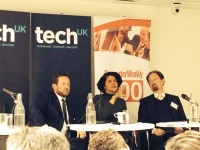Things are moving on, the ONS 2017 report reckons that 90% of households have internet access, presumably email & browser. …
Digital inclusions & democracy

25% of the UK population don’t have broadband, this is higher amongst the poor and the old; it generally costs more than the BBC Licence. Also not all internet users are Facebook users. Facebook (& other social media providers) cannot act as a guarantor of identity in government and political business, partly because they’re proprietary, closed source systems and thus users, citizens and judges do not know what the code does. Digital inclusion is still one of the key political issues to be addressed in the internet age, governments and political parties need to step very carefully when they use social media platforms as a means of understanding people’s views; this is before we consider the anti-democratic nature of survey’s and referenda, you can only answer the questions asked, usually in a binary or scalar fashion. It’s not good enough …..oh yeah & open source. …
Digital Question Time

I went up to Blackfriars to techUK’s offices to listen to their Digital Question time. They had arranged for Vaizey, Onawurah and Huppert to speak. I covered the event using storify, which I moved here, after storify terminated their service.
I originally said on this blog that they covered privacy, access and inclusion, start-ups, brexit (briefly) and government IT. Computer Weekly have hosted a video here…, if you want the complete story. The Guardian ran a story, “Vaizey calls for tech firms to ‘meet politicians halfway’ over encryption” and sub-titled, “Debate needs …